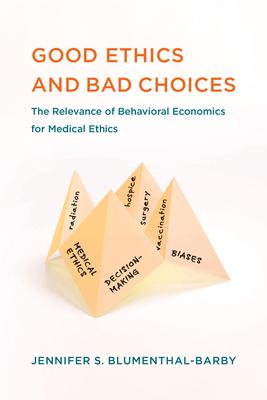
Book
Good Ethics and Bad Choices: The Relevance of Behavioral Economics for Medical Ethics
(Write a Review)
Paperback
$50.00
Blumenthal-Barby analyzes ethical issues raised by "nudging" patient decision making and argues that the practice can improve patient decisions, prevent harm, and perhaps enhance autonomy. She then offers a more detailed ethical analysis of further questions that arise, including whether nudging amounts to manipulation, to what extent and at what point these techniques should be used, when and how their use would be wrong, and whether transparency about their use is required. She provides a snapshot of nudging "in the weeds," reporting on practices she observed in clinical settings including psychiatry, pediatric critical care, and oncology. Warning that there is no "single, simple account of the ethics of nudging," Blumenthal-Barby offers a qualified defense, arguing that a nudge can be justified in part by the extent to which it makes patients better off.
Blumenthal-Barby analyzes ethical issues raised by "nudging" patient decision making and argues that the practice can improve patient decisions, prevent harm, and perhaps enhance autonomy. She then offers a more detailed ethical analysis of further questions that arise, including whether nudging amounts to manipulation, to what extent and at what point these techniques should be used, when and how their use would be wrong, and whether transparency about their use is required. She provides a snapshot of nudging "in the weeds," reporting on practices she observed in clinical settings including psychiatry, pediatric critical care, and oncology. Warning that there is no "single, simple account of the ethics of nudging," Blumenthal-Barby offers a qualified defense, arguing that a nudge can be justified in part by the extent to which it makes patients better off.
Paperback
$50.00